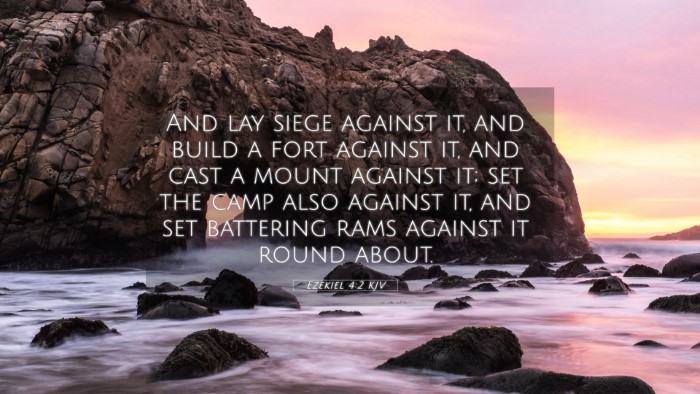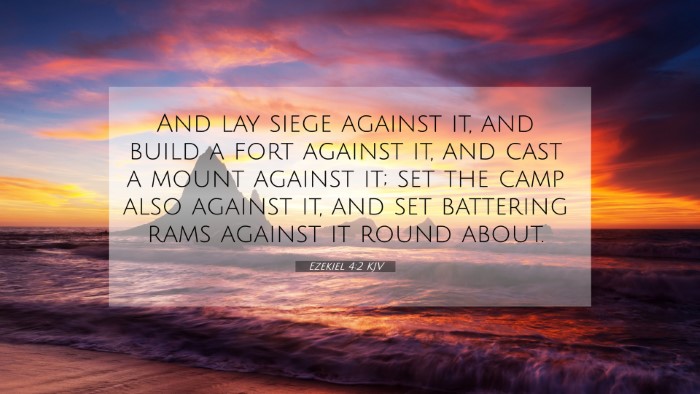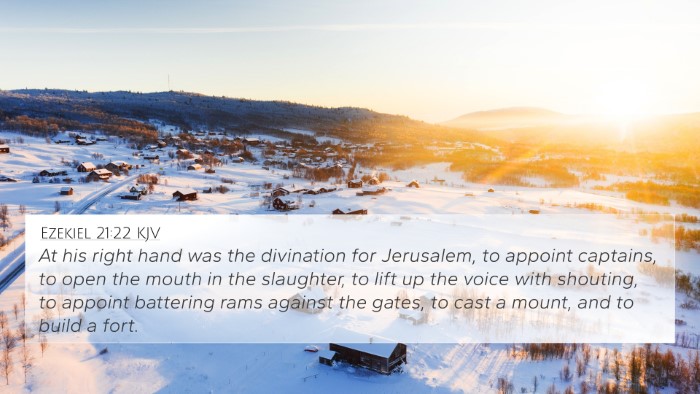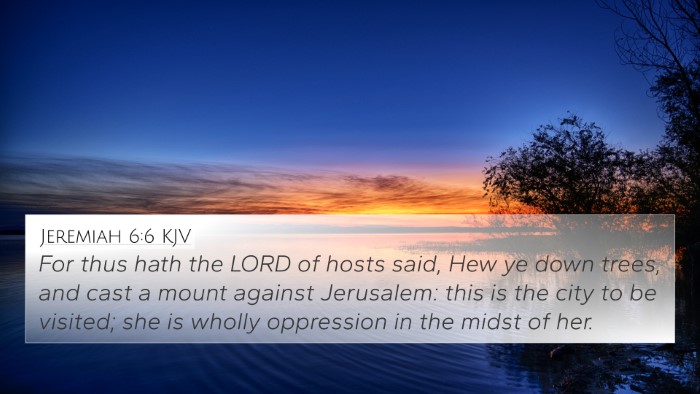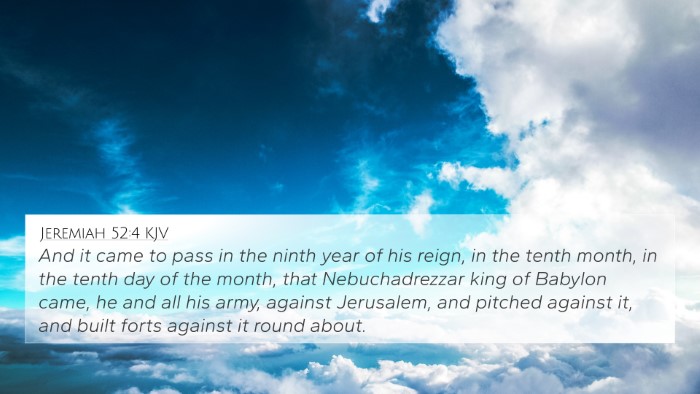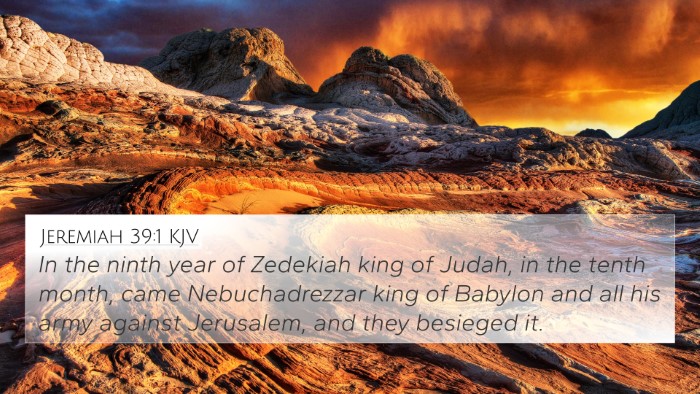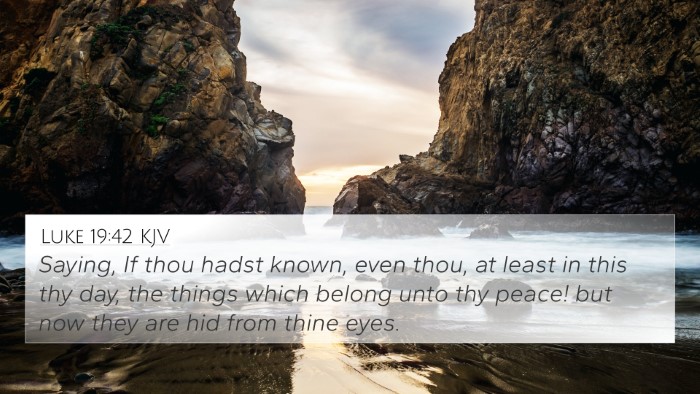Ezekiel 4:2 - Verse Meaning and Analysis
Ezekiel 4:2 states, "And lay siege against it, and build a fort against it, and cast a mount against it; set the camp also against it, and set battering rams against it round about." This verse is part of a prophetic act performed by Ezekiel as a symbolic representation of the siege of Jerusalem. Understanding this verse requires a comprehensive analysis informed by various public domain commentaries.
Summary of Ezekiel 4:2
The message in Ezekiel 4:2 indicates the dire situation faced by Jerusalem during the Babylonian siege. The imagery of laying siege, building a fort, and using battering rams illustrates the relentless attack that would come upon the city. This prophetic action signifies not only the physical desolation but also the spiritual decline of the people.
Commentary Insights
Matthew Henry's Commentary
Henry emphasizes the importance of this prophetic act as a demonstration of God's judgment. He notes that Ezekiel was commanded to act out the siege to warn the Israelites of the impending destruction due to their sins. This theatrical representation serves to connect the physical events with the spiritual truths of Israel's disobedience.
Albert Barnes' Commentary
Barnes offers insight into the symbolism of the siege. He explains that the fortification represents the strength of the Babylonian forces and the inescapable nature of divine judgment. Barnes highlights the meticulous detail in Ezekiel's actions, suggesting that they were meant to provoke reflection among the people about their sinful ways and the consequences thereof.
Adam Clarke's Commentary
Clarke provides a historical context, noting that the siege serves as a clear warning from God about the seriousness of rebellion against divine commands. He states that such vivid imagery would have deeply impacted the audience, urging them to recognize God's authority and the necessity of repentance.
Bible Verse Cross-References
This verse relates to several other biblical texts that reinforce its themes of judgment, siege, and prophetic warnings:
- Jeremiah 25:8-11: This passage discusses God's impending judgment upon Israel and the resulting desolation.
- 2 Kings 25:1-3: Provides the historical account of the siege of Jerusalem by Nebuchadnezzar.
- Lamentations 2:5: Reflects on God's wrath against His people, emphasizing the consequences of sin.
- Isaiah 39:6: Prophetically conveys the future calamities that will befall Judah due to disobedience.
- Micah 3:12: He announces the destruction of Zion because of leaders' corruption and injustice.
- Matthew 24:2: Jesus foretells the destruction of the Temple, echoing Ezekiel's message of desolation.
- Luke 19:41-44: Jesus weeps over Jerusalem, lamenting its impending destruction because of failure to recognize God’s visitation.
Thematic Connections
The themes of siege, judgment, and the call to repentance are predominant in both the Old and New Testaments, fostering a clearer understanding of the biblical narrative. The following aspects are notable:
- Divine Judgment: Consistent throughout the scriptures, showcasing God's response to sin.
- Symbolic Acts: Demonstrates God's use of prophets to convey messages through actions, as seen in various passages.
- Call to Repentance: Recurrent theme inviting God's people to turn away from their wickedness and seek restoration.
Tools for Bible Cross-Referencing
Utilizing tools for cross-referencing can augment the study of Ezekiel 4:2 and its interconnections:
- Bible concordance for quick reference to terms and themes.
- Cross-reference Bible study guides that categorize themes accordingly.
- Bible reference resources for in-depth analyses and comparisons.
Conclusion
Ezekiel 4:2 serves as a powerful reminder of the seriousness of sin and the inevitable consequences of turning away from God's ways. The connections found across various scriptures highlight a cohesive biblical narrative. Engaging with these texts through cross-referencing offers a richer understanding of the overarching themes of judgment and redemption throughout the Bible.

